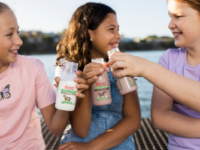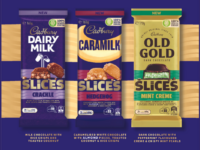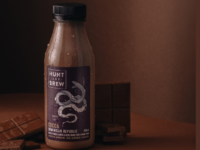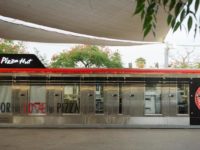
From business consultant to the founder of a plant-based food-delivery service, Faith Forster’s journey to create Thank Fork, Australia’s plant-based meal-kit startup, is a remarkable story.
While carrying twins, Forster was struggling with pregnancy-related diabetes, which caused insulin resistance. On medical advice, she decided to switch to a plant-based diet, hoping to improve her health – and reduce her carbon footprint at the same time. However, starting a strictly plant-based diet was far from easy.
“It requires completely rethinking everything you’ve known about cooking and eating,” she said. “The enthusiasm quickly wore off when I had to cook twice a day for myself, as well as separate meals for the family.
“Being an entrepreneur, I felt compelled to do something to make shifting towards a plant-based diet easier for people, both for the sake of our environment and our health.”
With Thank Fork, Forster wanted to create something that did not resemble bland aeroplane meals but was easy and quick to prepare.
“Our food purposely appeals to meat eaters as well as vegan or vegetarian people. We want to demonstrate that you don’t have to ‘give anything up’ to eat plant-based, especially flavour.”

When starting the business, Forster talked to many potential customers as part of her market research. The response was overwhelmingly positive, especially from working professionals, who wanted to pursue a plant-based diet, but were unable to make the transition due to hectic schedules.
“This group is also willing to spend money on good food, [but] the taste had to be exceptional to keep them coming back, and convenience was really important,” she said. “They also felt really uncomfortable with all the packaging in most home-delivery services, which is why we have gone to a lot of trouble to make sure our packaging is 100-per-cent compostable.”
Thank Fork’s current menu features six plant-based dishes, including rice bowls, authentic Mexican tacos and Asian pancakes. The brand is expanding its menu with a new plant-based burger range next month in partnership with Fenn Foods and Fable Foods.
“Our aim is not to have a wide and ever changing menu, like Marley Spoon.”
Currently only catering to Sydney, the Central Coast and Newcastle, in NSW, Thank Fork aims to expand its presence into other states through specialist stores and grocers next year.
“We see the fact that our food is 90-per-cent preprepared as a competitive advantage – it means we can distribute through multiple channels and formats relatively easily,” she added.
Plant-based diets have become a global trend as more people are now aware of the benefits to their health and the environment. According to Roy Morgan data from April last year, some 2.5 million Australians, or about 12.1 per cent of the population, are now eating all or almost all vegetarian diets.

Allen Zelden, founder of Intrinity Global and plant-based food industry consultant, says the meal kit market is booming globally. Based on recent Nielsen data, meal kits in the US are growing three times faster than any other food channel option.
In Australia, the meal-kit market is estimated to be worth more than $300 million in annual sales, growing at a rate of 40 per cent year on year.
Coinciding, the two trends have created an extraordinary rise in products and services that offer the promise of convenience without harming animals or the environment, says Zelden.
“To remain competitive, many meal-kit companies such as Marley Spoon have expanded their menus to include a selection of plant-based meals. However, what makes Thank Fork’s meals especially unique is their strong focus on food innovation and environmental packaging which is sure to create far greater customer loyalty, especially amongst millennials who demand sustainability and increasingly seek more inventiveness from their food choices.”












